Gordon Leidner's Blog, page 2
September 21, 2012
Research paper topic for the American Civil War: Fear as a cause of the war
What happens when a people are more motivated by fear than by logic in an election year? In the presidential election of 1860, political leaders such as Robert Barnwell Rhett of South Carolina, William Lowndes Yancey of Alabama, and Lewis T. Wigfall of Texas unashamedly used fear to motivate southern constituents to vote against the Republican candidate, Abraham Lincoln. Lincoln’s name was not even listed on ballots in nine southern states. Even though Lincoln was a “moderate” Republican on the slavery issue—stating time and again that he believed slavery should die a slow death over the coming years rather than be immediately ended, southern people became fearful of what would happen in the event he, or any Republican, was elected.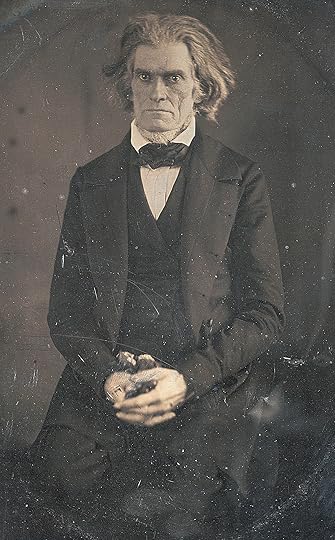
To the vast majority of the southern people, who did not own or have any interest in slaves, the election of Lincoln would have had little adverse impact. The Southern economy could have continued to prosper. This was because the US Senate was evenly balanced between pro-slavery and anti-slavery factions until 1858, when the anti-slavery block increased by four votes (34 to 30) over the pro-slavery block. Even after Lincoln’s election, the North would not have had a sufficient majority in the Senate to end slavery, as this would have required a two-thirds majority vote to pass a constitutional amendment. Arguably, this would not have happened until at least 1896, when Nevada was admitted as the 30th Free State. This was 35 years after the Civil War began.
In the meantime, the South could have made adjustments to its economy to accommodate the additional labor costs that would have resulted from the increased wages for the former slaves. This certainly would have had less adverse impact than the Civil War—which ruined the South’s economy and plummeted the southern people into poverty for decades.
So why did the southern people, who had so little interest in slaves, vote against Lincoln and then in favor of secession—and war—at the subsequent state conventions?
A possible answer is “fear.” The Fire Eaters of the South (politicians like Rhett, Yancey, Calhoun, and Wigfall) were influential politicians and, in Rhett’s case, influential newspaper owners. They were also wealthy land owners that had a vested interest in the continuation of slavery. Knowing most southerners had little interest in slaves, they had to find a way to motivate the majority to vote in favor of secession in order to guarantee the continuation of slavery. Their answer: instill fear into the southern people that if Lincoln were elected, the southern “way of life” would be attacked. Southerners loved their agrarian way of life, and generally disdained what their politicians and newspapers called the “mudsills and greasy mechanics” of northern society.
So this is how southern politicians instilled fear in their constituents. A worthwhile research paper topic is to determine whether or not northern politicians did the same thing (with opposite intentions)? Did they use fear to motivate their own constituents against slavery? If so, how? If not, why did the northern people fight the South’s secession so vehemently? Who were the northern politicians and what positions did they take regarding slavery and war? Could the American Civil War have been avoided? Was Lincoln’s election really a threat to the institution of slavery? See the Outline of the Civil War page and the Recommended Reading page of Great American History for research tools in this subject.
September 15, 2012
Research paper idea: Was the American Revolutionary War really necessary?
We tend to take the American Revolution for granted. It was inevitable. It was a good thing. But here is an interesting research project: Was the American Revolution really necessary?
Most people know that the American Revolutionary War happened because the people of the American Colonies, who considered themselves citizens of the British Empire, grew dissatisfied with the taxes being imposed on them by Britain’s Parliament. Although they didn’t like paying the taxes, they were less concerned about the money than the fact that they had no way of debating them via political process—America had no elected members of Parliament to represent their interests. “Taxation without representation!” was the rallying cry of independence-minded American political leaders in the years preceding the 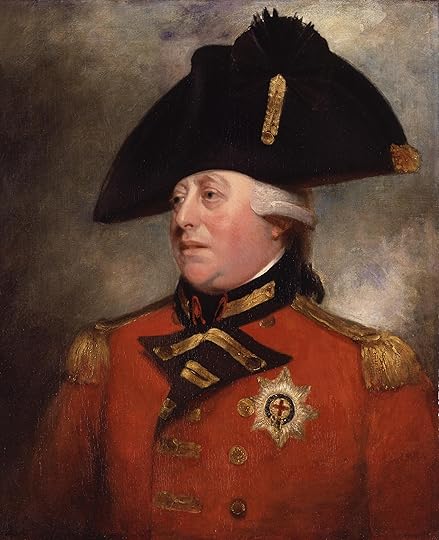 Revolutionary War.
Revolutionary War.
Americans believed that, as British subjects, they deserved a voice in the decisions of their government. The “rights of Englishmen” had been assured by various British constitutional documents, including the Magna Carta of 1215 and Britain’s Bill of Rights of 1689. This fact, when combined with the influence of European philosophers such as John Locke and Voltaire (who had espoused republican and liberalistic ideals of democratic government), caused Americans to become increasingly outraged by the British government, who they considered “tyrannical.”
The political unrest caused by Parliament’s new taxes has been described as either the cause or the excuse for the Rebellion, depending on the viewpoint of the historian.
So the obvious question becomes: “If the American Colonists’ outrage over their lack of representation in Parliament was causing a rebellion, why didn’t the British government diffuse the situation by granting the American Colonies some degree of representation?”
Good question! After all, Britain’s interest in America was immense. The American Colonies, with almost 3 million people at the time of the Revolutionary War, represented nearly a third of the British Empire’s total population. Fifty percent of British shipping was involved in trade with the Americas. At least one fourth of Great Britain’s manufactured goods were exported to America. The American Colonies’ land mass was over four times larger than that of the British Isles—and the North American continent many times that.
Parliament never gave serious consideration to granting her American Colonies representation. If it had, they could have significantly weakened the colonist’s “taxation without representation” argument—and may have delayed or prevented the Revolution. But instead of trying to prevent war by treating the colonists as people with the rights of Englishmen, both Parliament and the King considered them second class citizens, and once the fighting began—mere rebels.
Topics that could be researched in the answer to the question are: British Navigation Acts, British-American trade before the Revolutionary War, Acts of Parliament regarding American Colonies, William Pitt the Elder, King George III and the American colonies, Taxation without representation, rights of Englishmen. A starting point is the Outline of the American Revolution.
September 2, 2012
Research topic for the American Civil War—Comparison of the Union’s Abraham Lincoln to the Confederacy’s Jefferson Davis
Comparison of the lives and leadership abilities of the North’s Abraham Lincoln and the South’s Jefferson Davis makes an interesting study in contrasts. They were both born in log cabins in Kentucky, within 1 year and 100 miles of one another. Thomas Lincoln, the father of Abraham, was a hard-scrabble farmer that placed minimal value on education. Samuel Davis, father of Jefferson, was a successful tavern keeper that wanted his son to receive a good education and to live the life of a gentleman. Thomas Lincoln hated slavery, whereas Samuel Davis saw slavery as a means for future prosperity.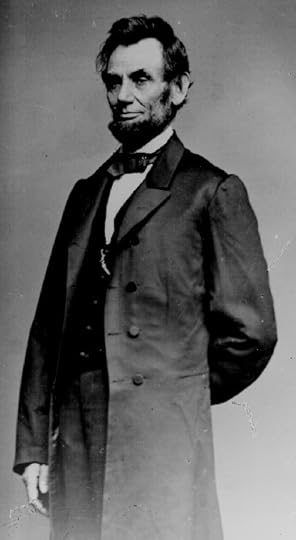
When Abraham was a boy, the Lincolns moved north from Kentucky to Indiana, and continued the lives of impoverished, small farmers. Thomas Lincoln frequently hired his son out as a laborer to local farmers, keeping the wages Abraham earned. Thomas placed little value in education, and Abraham would receive less than a year of formal schooling by the age of 18. He learned what he could by borrowing books and studying at home.
When Jefferson was a young boy, Samuel Davis sold his tavern in Lexington, Kentucky in order to move to Mississippi to buy a plantation and slaves. Jefferson’s father sent his son to a preparatory school and then to Transylvania University in Lexington, Kentucky. Through the influence of his wealthy older brother, Jefferson Davis later obtained an education at the United States Military Academy at West Point.
When Lincoln reached the age of 21, he left his hard life as a farmer behind and moved to the village of New Salem, Illinois. There he began to work at various jobs such as a store clerk, postmaster, and surveyor. While in New Salem he served briefly as a captain of Militia in the Black Hawk Indian War. He taught himself law, was elected to the state legislature, and was admitted to the Illinois bar. Lincoln won four terms in the Illinois State Legislature, and later went on to a single term in the United States House of Representatives in Washington.
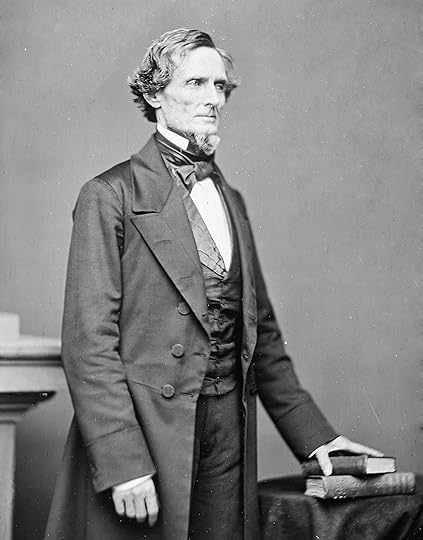 After graduating from West Point, Davis spent several years in the army and then quit to marry the daughter of the future American president Zachary Taylor. Davis received a wedding gift of an 800 acre farm and slaves from his older brother, and was later elected to the US Congress. He served as an officer in the Mexican War, and was appointed to fill a vacant Senate seat by Mississippi’s governor. His service in the Senate was interrupted in 1853 when President Franklin Pierce asked Davis to be Secretary of War in his administration, but four years later Davis returned to the Senate. During these years as a Democratic Senator from Mississippi, he earned a reputation as an effective orator for the cause of the South and as a protector of the institution of slavery.
After graduating from West Point, Davis spent several years in the army and then quit to marry the daughter of the future American president Zachary Taylor. Davis received a wedding gift of an 800 acre farm and slaves from his older brother, and was later elected to the US Congress. He served as an officer in the Mexican War, and was appointed to fill a vacant Senate seat by Mississippi’s governor. His service in the Senate was interrupted in 1853 when President Franklin Pierce asked Davis to be Secretary of War in his administration, but four years later Davis returned to the Senate. During these years as a Democratic Senator from Mississippi, he earned a reputation as an effective orator for the cause of the South and as a protector of the institution of slavery.
Lincoln had left Congress to pursue a successful law career in Illinois, but the Kansas-Nebraska Act of 1854 inspired him to run against Stephen A. Douglas for the US Senate in 1858. Although he lost the election, Lincoln became nationally known as a leader of the new Republican Party and a powerful speaker against the expansion of slavery.
In 1861, Lincoln and Davis would find themselves opposing one another as leaders of two separate regions of the country, engaged in the bitter American Civil War. How could two lives that began so similarly end up so different? Was it simply a matter of one moving south, and the other north? Was it a matter of education? Was it the influence of their fathers? How did Lincoln and Davis compare as leaders? Lincoln had almost no military experience, but Davis had a great deal of military experience. Did this provide him an advantage during America’s most costly war? Each of these questions are worthy of research. A worthwhile starting point is Great American History's Outline of the Civil War .
August 31, 2012
Unique research topic for the American Revolutionary War: Suffering at Valley Forge, PA
Nearly everyone has heard of “Valley Forge.” Usually, people talk of the “winter of Valley Forge,” and envision George 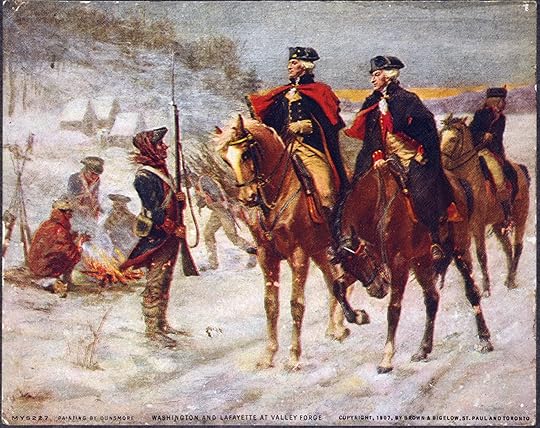 Washington, in the snow, kneeling down and praying for his troops. Or, perhaps we think of a cluster of American Revolutionary War soldiers, poorly clad, hovering around a small campfire in the snow. It’s easy to read about that and think for a few seconds, “Yeah, they must have had a really rough time. Too bad!”
Washington, in the snow, kneeling down and praying for his troops. Or, perhaps we think of a cluster of American Revolutionary War soldiers, poorly clad, hovering around a small campfire in the snow. It’s easy to read about that and think for a few seconds, “Yeah, they must have had a really rough time. Too bad!”
But that’s not even half the story. Yes, American troops at Valley Forge, Pennsylvania in the winter of 1777-1778 really DID have a “rough time.” While their British opponents occupied comfortable quarters in and around Philadelphia, American soldiers were crammed into makeshift cabins, with dirt floors and leaky fireplaces made of mud and sticks. While British troops had plenty to eat and drink, the American troops were begging their officers for food. The British troops were well supplied with comfortable, warm clothing. Many of the American troops did not even have overcoats, or blankets, or shoes. Many a soldier lost feet or other limbs to frostbite. Washington lamented that it was a common sight to see tracks of blood in the snow from his soldiers’ bleeding feed. Smallpox and other deadly sickness was rampant as well. Morale for the American Army was at an all-time low. They had fought the British for over a year, and for what purpose? The Congress did not adequately supply them, and it seems that much of the country didn’t care. They had little communication with their families. There was almost no medical care. The sick often layed alone in dark, frigid “hospitals,” with very little care. It was not uncommon for them to die alone.
Why? Why was the army of a nation of three million people, less than 2 years into the war, reduced to a mere five thousand, suffering, and seemingly abandoned soldiers? Most of the people in America were living in warm, comfortable homes, with ample food. That winter was a brutal one in that the temperatures fell to below zero and the snowfall was higher than normal. But most of America did not suffer from this. It was just their sons and brothers, their fathers and friends at Valley Forge, Virginia.
Was this a result of incompetence in the army? The incompetence of Congress?
Was there in fact an indifference on the part of the majority of the American people? Could it simply be attributed to poor communications? Not only were the men denied proper provisions and care, but they couldn’t even get their wages from Congress! Many had fought for over a year without any pay at all, and when it did finally come, it was almost worthless paper rather than hard specie.
So, what went wrong at Valley Forge? It is a topic worth researching. A good starting point is Great American History’s Outline of the American Revolution’s link for Valley Forge.



